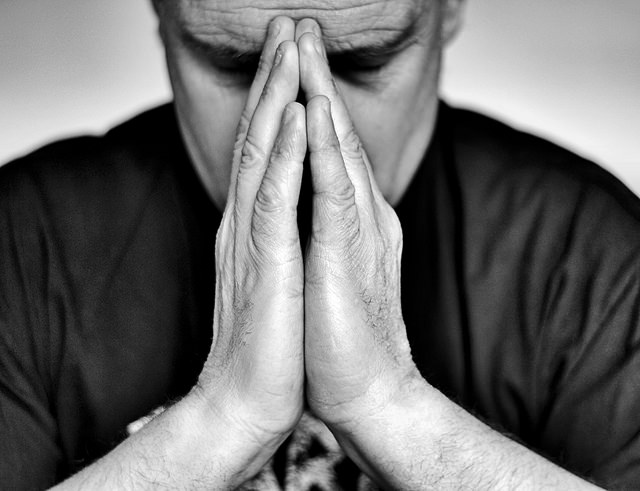
The power of the mind’s intention has been studied for years, and the findings are surprising.
I once heard Larry Dossey, MD, who wrote the book on the benefits of prayer, say that “if prayer was a drug, it would be the most famous of all drugs because of the volumes of science that support it.”
The science however is not restricted to prayer. It seems that it is our intention that is so powerful. It could be through a wish, meditation, prayer or thought—if directed at someone or something, it can be very powerful.
In one study for example, 60 college students who were not known to be psychically gifted were asked to alter the growth of the bacterium Escherichia coli (E. coli) psychokinetically.
>>> Each student was asked to accelerate the growth of one set of bacteria and decelerate the growth of another set of bacteria with their intention.
>>> A third set of bacteria was set aside as a control group.
The results indicated that the bacterial growth was psychokinetically accelerated in samples whose intention was growth, and decelerated in the samples intended for slowed growth. Both out-performed the controls. (1)
In another study, 10 subjects tried to inhibit the growth of a fungus culture through conscious intent by concentrating on the cultures for 15 minutes from a distance of 1.5 yards. The cultures were then incubated for several more hours and out of 194 culture dishes, 151 showed inhibited growth. (4) This study was replicated successfully at distances from one to 15 miles away. (4)
After 9/11, there were reports suggesting that random event generators used for such purposes as choosing lottery numbers were unable to deliver random numbers due to the possible effect of a group consciousness shift.
In the prestigious journal, Foundations of Physics, researchers reviewed over 800 studies between 1959 and 1987 aimed at mentally influencing the outcomes of random event generators. The consensus of more than 60 experimenters in these studies found the results “robust and repeatable,” suggesting that, in principle, human intention, and not necessarily prayer, can affect the physical world. (2) Some of these studies performed at the Princeton Engineering Anomalies Research lab (PEAR) saw physical changes in the random events generators remotely from up to 1,000 miles away. (3)
I am sure that many researchers would find these studies flawed in some way, rendering them unreliable. Better designed studies still need to be done to confirm these findings, but considering the vast number of them, I thought it important to share them.
Is the idea of mental or spiritual healing, which has been with us since ancient times, now beginning to be supported by modern science?
Let me leave you with this amazing fact about the power of the placebo effect—the power of the mind:
When pharmaceutical drug companies apply for approval from the FDA, they must show at least one trial on their drug that shows it works better than the placebo. The placebo is often so powerful, many drugs fail to meet this requirement. In fact, in a meta-analysis (review of many studies) aimed at comparing the effects of placebos and actual treatments, “the placebos were more effective than the treatment.” (5)
For example, in private published and unpublished antidepressant trials sent to the FDA by pharmaceutical companies for drug approval, 57 percent of them failed to out-perform the placebos. (6) In the same report, the researchers found that 82% of the drug response was duplicated by the placebo, suggesting that when you take an antidepressant, 82 percent of the effect is a placebo. (6)
Perhaps since this effect is so powerful, we should be spending more time researching the power of intention instead of drugs, which are more often than not out-performed by dummy pills.
~
References:
- Psychokinetic control of bacterial growth. Nash, Carroll B. Journal of the Society for Psychical Research, Vol 51(790), Feb 1982, 217-221.
- The Institute of Noetic Sciences. THE DARK SIDE OF CONSCIOUSNESS AND THE THERAPEUTIC RELATIONSHIP. Excerpted from an address to the Sixth Annual Alternative Therapies Symposium and Exhibition, March 2002. By Larry Dossey
- Journal of Scientific Exploration, Vol. 6, No. 4, pp. 311-332,1992. Experiments in Remote Human/Machine Interaction BRENDA J. DUNNE AND ROBERT G. JAHN
- Altern Ther Health Med. 2002 Nov-Dec;8(6):12-6, 118-22. The dark side of consciousness and the therapeutic relationship.
- PLoS One. 2013 May 15;8(5):e62599. doi: 10.1371/journal.pone.0062599. Print 2013. Are treatments more effective than placebos? A systematic review and meta-analysis.
- Z Psychol. 2014; 222(3): 128–134. doi: 10.1027/2151-2604/a000176 PMCID: PMC4172306 Antidepressants and the Placebo Effect
Relephant:
3 Ways to Stop Negative Thoughts from Sabotaging Our Lives.
~
Author: Dr. John Doillard
Editor: Catherine Monkman
Photo: Craig Sunter/Flickr


 Share on bsky
Share on bsky




Read 0 comments and reply